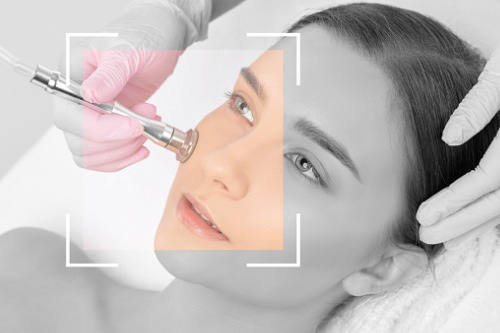Non surgical cosmetic practitoners - The journey to cosmetic regulation gathers pace

Authored by by Will Marshall, Head of Legal and Risk Management, Altea Insurance
This is the second in our series of occasional articles charting progress of the introduction of a new compulsory licensing scheme for non-surgical cosmetic practitioners.
Last month saw the latest significant milestone in the continuing journey towards a fully licensed sector with the publication of the Government’s open public consultation on the proposed licensing scheme The licensing of non-surgical cosmetic procedures in England - GOV.UK (www.gov.uk). The consultation, which ran until 28 October 2023, will take views from industry professionals and individuals who have undergone non-surgical cosmetic procedures, such as laser hair removal and dermal fillers, to give their views on how the industry can be made safer. Further, targeted consultations are expected in 2024 to include the standard of education and training and to consider any economic impact of the proposed regime.
Emerging details of the new local authority licensing scheme
As we previously reported, this particular licensing journey began back in April 2022 when the Health and Care Act granted the Secretary of State for Health and Social Care the authority to establish a licensing system for non-surgical cosmetic procedures in England. Health and Care Act 2022 (legislation.gov.uk) The Government has now published more details on how it intends this scheme to operate in practice.
Under the proposed plan in England, local authorities will oversee licensing for providers of specific non-surgical cosmetic procedures and the premises they operate from. To obtain a license, providers must meet training, qualification, indemnity cover, and hygiene standards. The scheme's enforcement will involve local authorities, along with partners like environmental health officers and trading standards officers. Non-compliance will result in criminal charges for unlicensed individuals. Additionally, a minimum age of 18 will be set for those seeking licensed non-surgical cosmetic procedures.
The hope is that replacing the current disjointed regulatory regime (where it exists at all) with a single, unified licensing scheme will provide individuals opting for non-surgical cosmetic treatments to have confidence in the safety and quality of the services they receive.
The need for engagement
The Government has acknowledged the dynamism and continuing exponential growth of the non-surgical cosmetic sector and the vast range of non-surgical cosmetic procedures available to consumers. It has reiterated that developing the scheme regulations will involve extensive consultation with diverse stakeholders, including industry representatives, healthcare regulators, accredited cosmetic practitioner registers, local authorities, and the Local Government Association. This broad engagement – which will take place throughout 2024 and 2025 – should help ensure that the proposed consultation accurately reflects the perspectives of various stakeholders, including those in the aesthetics industry and those responsible for public safety. While the scheme applies only to England, the Government is collaborating with the Scottish and Welsh Governments to align regulatory changes in non-surgical cosmetic procedures.
Public consultation
The consultation is tightly focused on 3 distinct issues:
- the cosmetic procedures that will be in scope
- the restrictions on which practitioners should be permitted to perform these procedures, and
- the age restrictions for those undergoing such procedures
Further consultations will address what is required to establish the scheme's core principles, including education and training standards, infection control, cleanliness, insurance needs, and licensing costs.
Categorising risk – the traffic light system
The Health and Care Act 2022 broadly defines cosmetic procedures as treatments for cosmetic purposes, excluding surgical or dental procedures. This includes:
- Injecting substances
- Applying substances that penetrate the skin
- Inserting needles into the skin
- Placing threads under the skin
- Using light, electricity, cold, or heat
The Government has made it clear that the new licensing scheme is not intended to cover all non-surgical cosmetic procedures. Whilst it acknowledges that all cosmetic procedures carry some risk, the consultation recognises that the level of risk varies radically from treatment to treatment. It considers certain high-risk procedures so complex and so invasive that they should only be performed by qualified and regulated healthcare professionals.
It is therefore proposing to introduce a traffic light system to categorise these different risk categories and determine which treatments will be in scope for the new regime. The consultation seeks feedback (and gives an indication as to the Government’s current thinking) on the appropriate risk categories for each non-surgical treatment.
The Green category will include low-risk procedures that all practitioners can do (regardless of whether they are healthcare professionals), provided they meet the new standards. These procedures may include, but will not be limited to, microneedling, mesotherapy, intense pulsed light (IPL) and light emitting diode (LED) therapies, chemical peels limited to the viable epidermis, 'no-needle' fillers using intense pressure to pass substances through the epidermis, micropigmentation, non-ablative laser hair removal, and photo rejuvenation using lasers for skin conditions like wrinkles and acne scarring.
The Amber category will include medium-risk procedures. Whilst non-healthcare professionals will still be able to perform these procedures, they will have to be licensed and overseen by a regulated healthcare professional with the right qualifications. The specific eligibility criteria and supervision requirements will be determined later as part of the training and qualifications framework.
Healthcare professionals can perform these without oversight if they meet established standards. Procedures in this category are expected to include botox injections, facial dermal fillers, injections like PRP therapy, weight loss injections, and various skin treatments such as cryolipolysis, HIFU, and radiofrequency therapy, among others.
The Red category will include the highest-risk procedures. Only qualified and regulated healthcare professionals can perform these procedures in CQC-registered premises. The treatments in this category are likely to include thread lifting, hair restoration surgery, body augmentation with fat or fillers, deep chemical peels, advanced lasers, and intravenous injectables.
These restricted high-risk treatments will not be covered by the local authority licensing scheme. Instead, the Government proposes to amend CQC regulations so that the procedures in this category are classified as regulated activities by CQC. This means that non-healthcare professionals would no longer be able to carry out these procedures, and the healthcare professionals performing them must also register with the CQC.
This would represent a significant shift in the existing law. Currently, healthcare professionals are only legally required to be CQC registered if they offer invasive treatments such as cosmetic surgery with instruments inserted into the body (e.g., breast surgery, facelifts), liposuction (including laser lipolysis), eye or lens implant surgery or thread lifting procedures.
The Government also proposes that qualified and regulated healthcare professionals oversee procedures involving prescription-only medicines (POMs). This includes procedures directly using POMs and those using POMs alongside other procedures (such as anaesthetics).
The consultation also recognises that some non-surgical cosmetic procedures have medical benefits and may be used to treat medical issues. If a healthcare professional, or a team including such a professional, is involved in such a procedure for medical purposes, it may fall under CQC regulation and not be part of the licensing scheme. Cosmetic-only interventions will not be included in this category.
Introducing a minimum age
The licensing scheme also proposes prohibiting practitioners from performing any procedures included within the scheme to those under 18 unless it has been approved by a GMC-registered doctor and is carried out by a specified healthcare professional. This will be in line with the Botulinum Toxin and Cosmetic Fillers (Children) Act 2021 and the law in respect of botox injections, cosmetic fillers, tattoos, teeth whitening and sunbed use.
Next steps
There is still a long way to go before these proposals become enshrined in law. Following the consultation, the Government will publish its finalised policy positions and begin work on the elements underpinning the licensing scheme, including education and training standards, insurance, infection control and hygiene standards and a fees model. This will lead to further consultations. Watch this space!
About Altea
Altea is a unique provider of combined insurance and risk management solutions tailored for the medical, allied health and care sectors.
With unmatched sector expertise, Altea minimises frictional burden to clients by delivering capital efficiency through multi-year, multi-class insurance solutions. Altea’s fresh approach to risk management marks a significant shift in the medical indemnity arena, offering Insureds the opportunity to mitigate risks before they arise.
Altea's personalised, practical and sustainable solutions underpin its Insureds' and Partners' practices, protecting and enabling them to focus on their business and growth.
We care that you care.
Learn more at: https://www.alteainsurance.com/
The information contained in this article does not represent a complete analysis of the topics presented and is provided for information purposes only. It is not intended as legal advice and no responsibility can be accepted by Altea Insurance for any reliance placed upon it. Legal advice should always be obtained before applying any information to particular circumstances.”
About Mission Underwriters
Mission Underwriters empowers high-performing underwriters to establish their own specialist insurance MGAs via our team of experts, differentiated technology infrastructure and long-term capacity.
We're in the business of nurturing growth and propelling MGAs to evolve beyond the confines of mere incubation. At Mission, we share the same level of commitment as our MGAs in prioritising their customers' experience and satisfaction by offering ongoing tailored support that fosters long-term benefits over short-term gains.
Mission Underwriters is backed by Altamont Capital Partners, a private equity firm focused primarily on making long-term, control investments in middle market businesses. Mission Underwriters is proud to align with the following organisations in providing specialised policies and solutions:

